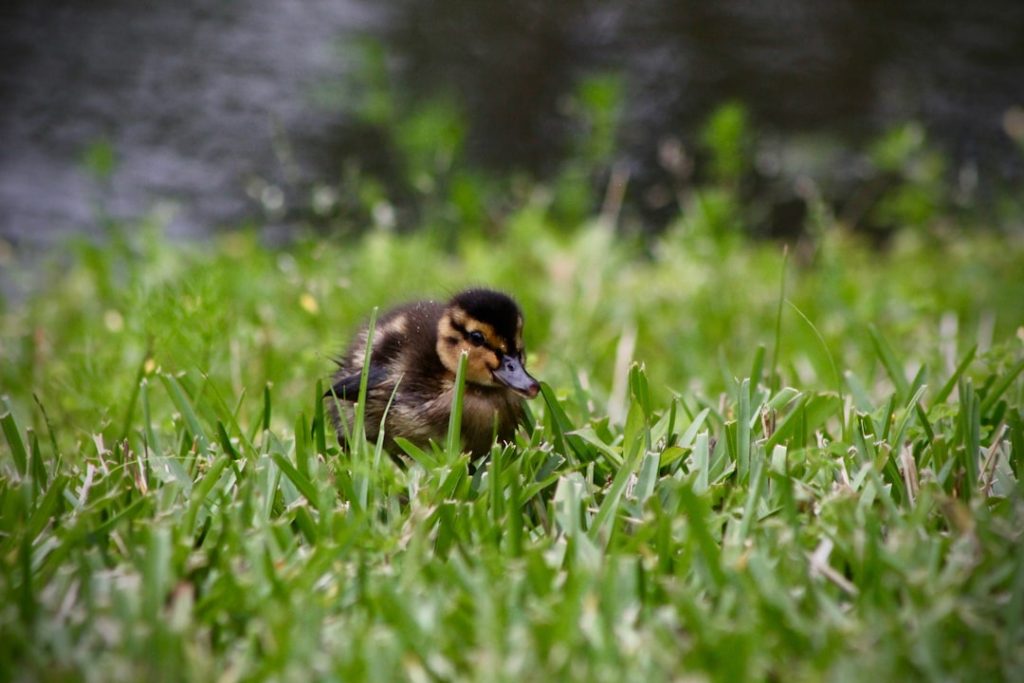Duck breeds come in a wide variety, each with its own unique characteristics and traits. When it comes to raising duck chicks, it’s important to choose the right breed that suits your needs and preferences. Ducklings are adorable and fluffy, and they require proper care and attention to ensure they grow into healthy and happy adult ducks. Whether you’re raising ducks for eggs, meat, or simply as pets, there are several popular duck breeds that are well-suited for raising as chicks. Understanding the different characteristics and traits of these breeds can help you make an informed decision when selecting the right ducks for your flock.
Table of Contents
Key Takeaways
- Duck breeds as chicks are diverse and offer a range of characteristics and traits for different purposes.
- Popular duck breeds for raising as chicks include Pekin, Khaki Campbell, and Rouen for their meat and egg production.
- Different duck breeds have unique characteristics and traits, such as the Pekin’s docile nature and the Khaki Campbell’s high egg production.
- When caring for duck chicks, it’s important to provide warmth, proper nutrition, and protection from predators.
- Housing and environment for duck chicks should include a secure and spacious coop with access to water for swimming and foraging.
Popular Duck Breeds for Raising as Chicks
1. Pekin Ducks: Pekin ducks are one of the most popular duck breeds for raising as chicks. They are known for their large size, white feathers, and friendly disposition. Pekins are excellent egg layers and are also raised for their meat. They are easy to care for and are known for their calm and docile nature, making them a great choice for beginners.
2. Khaki Campbell Ducks: Khaki Campbell ducks are another popular choice for raising as chicks. They are excellent egg layers, producing up to 300 eggs per year. They have a khaki-colored plumage and are known for their active and curious nature. Khaki Campbells are also good foragers, making them a great choice for free-range environments.
3. Indian Runner Ducks: Indian Runner ducks are known for their upright posture and distinctive appearance. They come in a variety of colors and are excellent egg layers, producing up to 200 eggs per year. Indian Runners are also known for their friendly and sociable nature, making them a great choice for backyard flocks.
4. Rouen Ducks: Rouen ducks are a domesticated breed that closely resembles the wild Mallard duck. They have a striking plumage with iridescent green heads and rich brown bodies. Rouens are known for their calm and gentle temperament, making them a popular choice for families with children.
Characteristics and Traits of Different Duck Breeds
Each duck breed has its own unique characteristics and traits that make them suitable for different purposes. Understanding these traits can help you choose the right breed for your specific needs and preferences.
Pekin ducks are known for their large size, white feathers, and friendly disposition. They are excellent egg layers and are also raised for their meat. Pekins are easy to care for and have a calm and docile nature, making them a great choice for beginners.
Khaki Campbell ducks are excellent egg layers, producing up to 300 eggs per year. They have a khaki-colored plumage and are known for their active and curious nature. Khaki Campbells are also good foragers, making them a great choice for free-range environments.
Indian Runner ducks are known for their upright posture and distinctive appearance. They come in a variety of colors and are excellent egg layers, producing up to 200 eggs per year. Indian Runners are also known for their friendly and sociable nature, making them a great choice for backyard flocks.
Rouen ducks closely resemble the wild Mallard duck in appearance, with striking plumage featuring iridescent green heads and rich brown bodies. They have a calm and gentle temperament, making them a popular choice for families with children.
Caring for Duck Chicks: Tips and Considerations
When caring for duck chicks, there are several important tips and considerations to keep in mind to ensure their health and well-being.
Provide a warm and draft-free environment: Ducklings require a warm environment to thrive, especially during the first few weeks of life. A heat lamp or brooder is essential to maintain the proper temperature (around 90-95°F) until they develop feathers.
Provide access to clean water: Ducklings need access to clean water at all times. Shallow water dishes or special chick waterers should be used to prevent drowning.
Provide proper nutrition: Ducklings require a balanced diet to support their growth and development. A commercial chick starter feed with around 18-20% protein is recommended for the first few weeks, followed by a grower feed with lower protein content as they mature.
Monitor for signs of illness: It’s important to monitor ducklings for any signs of illness or distress. Common health issues in ducklings include pasty butt, respiratory infections, and leg problems. Prompt veterinary care should be sought if any health concerns arise.
Housing and Environment for Duck Chicks
Creating the right housing and environment is essential for the health and well-being of duck chicks. Here are some important considerations when setting up housing for ducklings:
Provide adequate space: Ducklings require ample space to move around and exercise. A minimum of 3-4 square feet per duckling is recommended to prevent overcrowding.
Ensure proper ventilation: Good ventilation is essential to prevent the buildup of ammonia from droppings and to maintain air quality within the duckling’s living space.
Provide bedding material: A layer of clean bedding material such as straw or wood shavings should be provided to keep the ducklings warm and comfortable.
Secure the enclosure: The duckling’s housing should be secure from predators such as raccoons, foxes, and birds of prey. A sturdy enclosure with a secure door or lid is essential to keep the ducklings safe.
Create a safe outdoor area: If raising ducklings outdoors, provide a safe outdoor area with access to water for swimming and foraging. The outdoor area should be enclosed with fencing to prevent escape and protect the ducklings from predators.
Feeding and Nutrition for Duck Chicks

Proper feeding and nutrition are essential for the healthy growth and development of duck chicks. Here are some important considerations when it comes to feeding ducklings:
Provide a balanced diet: Ducklings require a balanced diet that is high in protein to support their rapid growth. A commercial chick starter feed with around 18-20% protein is recommended for the first few weeks, followed by a grower feed with lower protein content as they mature.
Offer fresh water at all times: Ducklings need access to clean water at all times. Shallow water dishes or special chick waterers should be used to prevent drowning.
Supplement with greens and treats: Fresh greens such as lettuce, spinach, and kale can be offered as treats to provide additional nutrients and enrichment for the ducklings.
Avoid feeding medicated feeds: Medicated feeds should be avoided when raising ducklings, as they may contain ingredients that are harmful to ducks.
Monitor feeding behavior: It’s important to monitor the feeding behavior of ducklings to ensure they are eating enough and growing at a healthy rate. Any signs of poor appetite or slow growth should be addressed promptly.
Health and Wellness of Duck Chicks
Maintaining the health and wellness of duck chicks is essential for their long-term well-being. Here are some important considerations when it comes to the health of ducklings:
Monitor for signs of illness: It’s important to monitor ducklings for any signs of illness or distress. Common health issues in ducklings include pasty butt, respiratory infections, and leg problems. Prompt veterinary care should be sought if any health concerns arise.
Provide regular veterinary care: Regular check-ups with a poultry veterinarian can help ensure that ducklings receive proper vaccinations and preventive care to maintain their health.
Preventative measures: Implementing preventative measures such as regular cleaning of housing, providing clean water, and maintaining proper nutrition can help prevent common health issues in ducklings.
Quarantine new arrivals: If introducing new ducklings into an existing flock, it’s important to quarantine them for a period of time to prevent the spread of diseases.
Overall, raising duck chicks requires careful attention to their specific needs in terms of housing, nutrition, health care, and environmental enrichment. By understanding the characteristics and traits of different duck breeds, as well as implementing proper care practices, you can ensure that your ducklings grow into healthy and happy adult ducks.
If you’re interested in learning more about different duck breeds as chicks, you might also want to check out this informative article on how to build a chicken coop. It provides valuable insights into creating a comfortable and safe environment for your poultry, which is essential for their well-being and productivity.
FAQs
What are some common duck breeds as chicks?
Some common duck breeds as chicks include Pekin, Khaki Campbell, Rouen, and Mallard.
How can I identify different duck breeds as chicks?
You can identify different duck breeds as chicks by their physical characteristics such as color, size, and markings. It is also helpful to research the specific breed and familiarize yourself with their unique traits.
What are the differences between duck breeds as chicks?
Differences between duck breeds as chicks can include size, color, feather patterns, and temperament. Some breeds may also have specific traits that make them better suited for certain purposes, such as egg production or meat.
What should I consider when choosing a duck breed as chicks?
When choosing a duck breed as chicks, consider factors such as your intended purpose (egg production, meat, pets), available space, climate, and the breed’s temperament and care requirements.
How do I care for duck breeds as chicks?
Caring for duck breeds as chicks involves providing a warm and safe brooder environment, proper nutrition, access to clean water, and regular monitoring of their health and well-being. It is also important to provide appropriate bedding and space for the chicks to grow and develop.
Meet Walter, the feathered-friend fanatic of Florida! Nestled in the sunshine state, Walter struts through life with his feathered companions, clucking his way to happiness. With a coop that’s fancier than a five-star hotel, he’s the Don Juan of the chicken world. When he’s not teaching his hens to do the cha-cha, you’ll find him in a heated debate with his prized rooster, Sir Clucks-a-Lot. Walter’s poultry passion is no yolk; he’s the sunny-side-up guy you never knew you needed in your flock of friends!







